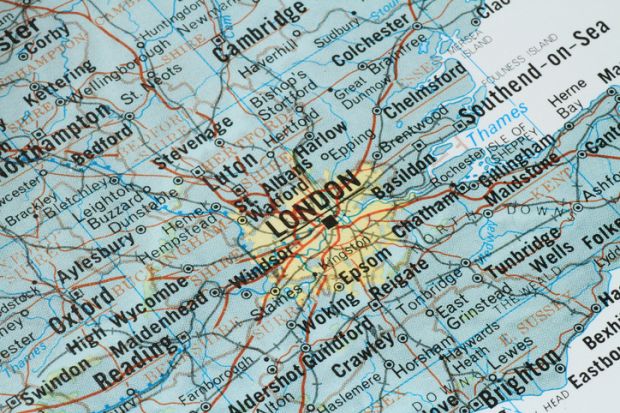Technological advancement is Darwinian, and UK science and technology needs to consistently get quicker and better connected to continue to thrive. That is why the UK chancellor of the exchequer's decision to invest in infrastructure for the country's “Golden Triangle” of Oxford, Cambridge and London (including a rail line between Oxford and Cambridge) is such a benefit to our knowledge economy.
This is good news for the quality of UK research, as well as for the researchers themselves. Great ideas and initiatives will be shared faster and more frequently.
This £100 million investment in the East-West train line will improve ease of travel, which will in turn spark new exchanges of human capital between Cambridge and Oxford. The winners from this investment will not just be academics but the startups, corporates and centres of excellence that make up the highly skilled economy that has sprung up around both universities.
Coupled with the £27 million invested in a new Oxford-Cambridge motor expressway, these two centres of research will enjoy better connections than ever before.
Reducing this distance and drawing research clusters together will help this 130-mile stretch of the Home Counties to occupy a new, world-leading position in science and technology research. This is an important step towards putting scientific research at the heart of the UK economy, drawing on two traditional centres of excellence.
This area can and should perform just as powerfully as Silicon Valley, by creating the conditions for research breakthroughs that can lead into commercial success. As Sir John Armitt said earlier this month in his interim report for the National Infrastructure Commission, improved infrastructure in this area could boost the area’s already impressive knowledge economy.
More than 60 per cent of the workforce in Cambridge and Oxford has a degree, so the workforce is highly skilled, and both of the towns' flagship universities have an excellent record of commercialising scientific research. Nine of the country’s top 100 high-growth tech firms are in this corridor, and the proposed infrastructure will allow the region to continue to drive the UK economy.
This economic activity further supports the academic base. Pharmaceuticals and IT are the most prominent beneficiaries of commercial science, but UK science as a whole has consistently created wealth and improved quality of life for multiple generations of people in the UK and all over the globe.
This capacity to influence the entire UK population in a million disparate ways is what attracts government support for project science. Only recently, the prime minister announced a new £2 billion annual fund to invest in science research and development, another welcome measure that represents a vote of confidence in academic research.
This economy thrives as much on collaboration as it does on skills and equipment. Improving infrastructure will allow companies based in these areas to share best practice and innovate more freely, from academic spin-offs to multinationals.
This 130-mile corridor is set to be a unified area of learning and development research that can lead the world and create a permanent friend and also rival to Silicon Valley. The line between Oxford and Bicester will open in the near future, and with new funding now available the line can continue to Bedford for completion in the 2020s. In the next two decades we hope to see the old varsity line connecting Oxford and Cambridge once more, as well as the softer connections that increased accessibility can bring.
The potential for exchange and discovery between these knowledge hubs is tangible and exciting, and we await the railway’s progress with eager expectation.
Angus Horner is a director at Harwell Science and Innovation Campus in Oxfordshire.
Register to continue
Why register?
- Registration is free and only takes a moment
- Once registered, you can read 3 articles a month
- Sign up for our newsletter
Subscribe
Or subscribe for unlimited access to:
- Unlimited access to news, views, insights & reviews
- Digital editions
- Digital access to THE’s university and college rankings analysis
Already registered or a current subscriber?






